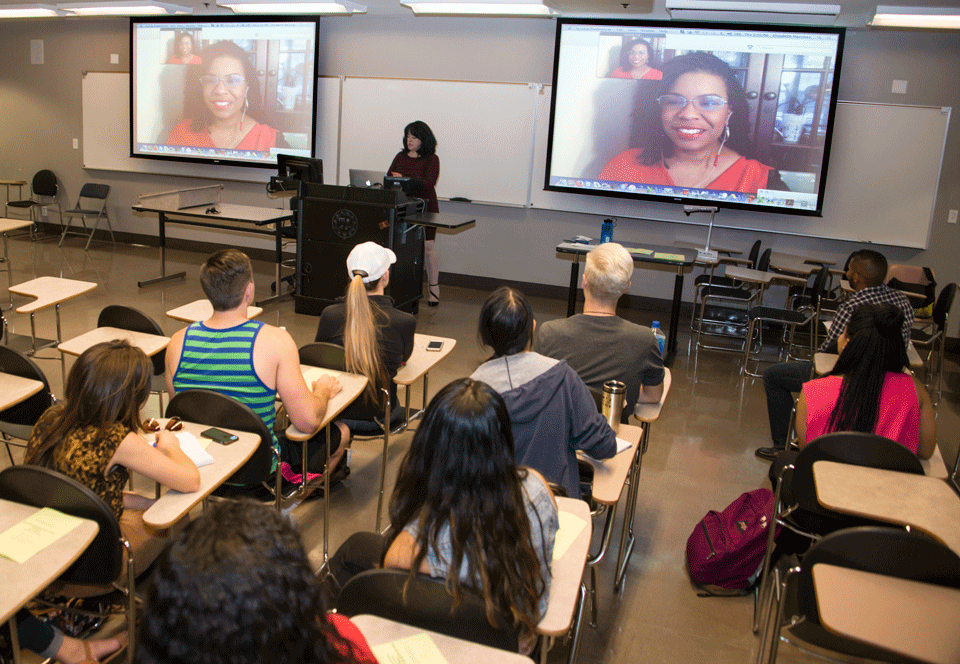25th Annual Kenneth S. Devol First Amendment Forum Discusses Free Speech in the Digital Age
Social media has become an indispensable medium of communication in modern society. Over the past 10 years, networks like Facebook, Twitter and YouTube have evolved into platforms of free speech and digital activism. Numerous social movements such as Black Lives Matter, the Arab Spring and the Hong Kong Umbrella Movement have used social media to raise awareness and spark conversations to push for change.
The 25th annual Kenneth S. Devol First Amendment Forum, held on April 21, discussed the impact of social media on social change by examining the influences of hashtags and measuring the outcomes of social media conversations.
“We have opened a door to a whole new social space where we can make social change,” said First Amendment scholar and CSUN Assistant Professor of Journalism Elizabeth Blakey, who organized and moderated the forum.
“We can make social change by networking on the internet,” Blakey said, mentioning that — unlike the mainstream media — no gatekeepers filter information on digital media.
Guest speaker April Reign, the creator of #OscarsSoWhite, talked about her experience initiating a social movement that criticized the lack of diversity in the entertainment and film industry.
“Because of social media, the information and the hashtag can travel around the world,” she said. “Hashtags are incredibly pervasive in society. Even if you’re not on Twitter, you see them used all the time.”
Reign coined the hashtag in response to the 2015 Academy Awards nominations, which lacked ethnic diversity. Though she had no intention to start a movement, #OscarsSoWhite gained great popularity and was a trending hashtag during the 2015 and 2016 Academy Award Shows.
“As the conversation grew, people from literally around the world started to pay attention to this issue,” she said. “We started to have very serious discussions about representation and the lack of inclusion of marginalized communities.”
Reign received interview requests from countries around the world and spoke globally about the issues of lacking representation. People interested in the Academy Awards learned about the racial prejudices of the American entertainment industry, but also spread conversations about the lack of representation in the entertainment industry in their own countries, said Reign.
CSUN graduate student in mass communication David Stamps talked about the importance of social media conversation. The creator of #WeMatterPoject started the hashtag in response to the prominent #BlackLivesMatter to increase the conversation about equality and justice.
“When you lack one-on-one interaction [with marginalized communities], entertainment media brings out stereotypes and biases that you start to hold as true — that’s a problem,” Stamps said. “When we come together collectively, we can change the narrative. We can push forward and see some change happen.”
International hashtags such as #WomenToDrive in Saudi Arabia or #UmbrellaRevolution against police brutality in China have increased public attention toward issues and pressured stakeholders for change.
“You can help to make change using your thumbs and your iPhone,” Reign said.
“Where mainstream media has failed us, digital media has given us an opportunity to raise our voice and bring us back to the First Amendment free speech,” Stamps added. “Digital Media allows us this platform for our voice to be heard and for us to control our narrative.”


 experience
experience